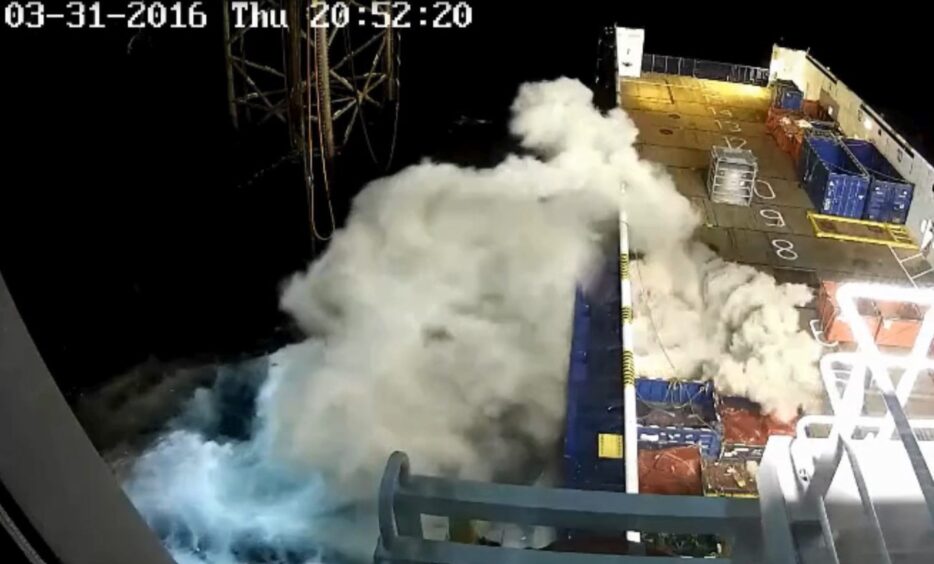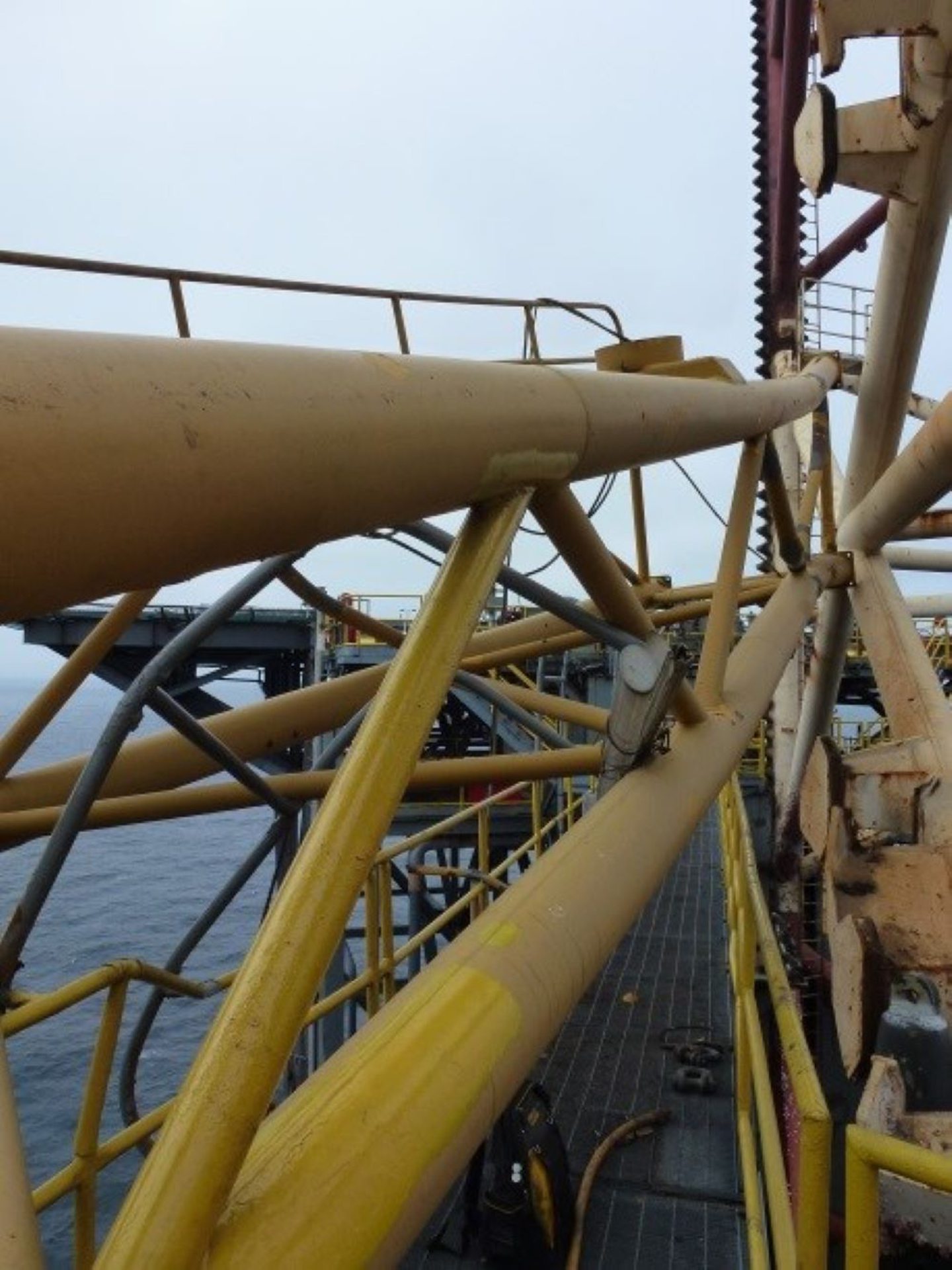
Drilling company Valaris (NYSE: VAL) has been fined £130,000 by an Aberdeen court following a North Sea crane boom collapse in 2016.
The Health and Safety Executive (HSE), which investigated the matter, said nobody was hurt in the incident on 31 March 2016, but a “chaotic scene ensued” after the collapse of the Rowan Gorilla VII crane’s boom.
Video of the incident shows flying debris damaging a nearby vessel, whipping a hose out of control before it ruptured, leaving a cloud of cement dust.
HSE inspectors described the incident as an “accident waiting to happen”.
In Aberdeen’s Sheriff Court today, Rowan Drilling (UK) Ltd, a subsidiary of Valaris which is registered in Aberdeen’s Queen’s Road, pleaded guilty to two breaches of the Health and Safety at Work etc. Act 1974.
Rowan Drilling merged with larger UK-based rival Ensco in 2019 to create the world’s largest offshore drilling firm by fleet size.
The company later changed its name to Valaris.
‘Pure luck’ nobody was hurt
The HSE said the incident happened offshore in the North Sea as staff aboard the Solvik Supplier vessel were preparing to recover a faulty submersible pump.
According to the HSE, as the crane operator raised the boom to clear one of the three legs of the installation it failed catastrophically and collapsed.
HSE investigators found the immediate cause of the crane collapse was that Rowan Drilling had not checked that a limit switch, designed to prevent the crane boom being raised to the point of mechanical failure, had been correctly set.
The HSE said three of the four boom sections fell into the sea between the rig and the Solvik Supplier supply vessel, which was pumping dry cement to the rig via a flexible hose.
The crane’s auxiliary hook, cables, components, and rig debris landed on the deck of the Solvik Supplier.
The boom tip snagged the flexible hose, dragging it below the sea surface, causing it to rupture and whip back onto the deck of the vessel engulfing it in fine cement dust.
Although no one was injured by the incident, the HSE there were at least five Rowan employees on and around the crane at the time of the collapse.
Meanwhile, there were thirteen crew onboard the Solvik Supplier.
HSE investigation
The HSE said its investigation found that safety mechanisms, designed to prevent inadvertent operation of the slew, hoist, and boom joystick controls in the port bow crane cabin had all been overridden to prevent them returning to their locked neutral position.
The HSE said it served an ‘Improvement Notice’ on Rowan Drilling to remedy issues relating to the limit switches and management issues identified.
HSE inspector Brian Kennedy said: “It was pure luck that nobody was seriously hurt or died as a result of these failings.
“As with so many incidents, the circumstances leading to the collapse of the port bow crane on the RGVII were years in the making and symptomatic of a defective safety management system that allowed those conditions to exist and persist.
“This was quite simply an accident waiting to happen and illustrates the vital importance of maintaining and testing crane limit switches to ensure they will always provide the intended level of protection.”
Energy Voice has contacted Rowan Drilling owner Valaris for comment.

 © Supplied by HSE
© Supplied by HSE